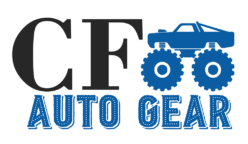The exhaust system is a crucial component of your vehicle, responsible for channeling harmful gases away from the engine and reducing emissions. Neglecting its maintenance can lead to reduced fuel efficiency, increased pollution, and costly repairs. By implementing a few key maintenance practices, you can significantly extend the lifespan of your exhaust system and ensure its optimal performance.
Regular Inspections: Your First Line of Defense
Establishing a routine inspection schedule is paramount in maintaining your exhaust system. At least twice a year, visually inspect the entire system, from the manifold to the tailpipe. Look for signs of rust, corrosion, holes, or loose connections. Pay close attention to the joints and hangers, as these are common areas for deterioration. If you notice any issues, address them promptly to prevent further damage. Professional inspections by a qualified mechanic are also recommended, especially if you live in an area with harsh weather conditions or frequently drive on rough roads.
Combating Corrosion: Protecting Against the Elements
Corrosion is a major threat to exhaust system longevity, especially in regions with road salt or high humidity. Applying a protective coating designed for exhaust systems can provide a barrier against rust and corrosion. These coatings are available in various forms, such as sprays or paints, and can be applied to the exterior of the exhaust pipes and muffler. Regular cleaning with a mild soap and water solution can also help remove contaminants that contribute to corrosion. Avoid using harsh chemicals or abrasive cleaners, as they can damage the protective coatings and accelerate corrosion.
Driving Habits: Minimizing Strain on the Exhaust
Your driving habits can significantly impact the lifespan of your exhaust system. Short trips, where the engine doesn’t fully warm up, can cause condensation to accumulate in the exhaust pipes, leading to rust. Try to incorporate longer drives into your routine to allow the exhaust system to heat up and evaporate any moisture. Avoid aggressive driving, such as rapid acceleration and hard braking, as this puts excessive strain on the exhaust components. Choosing the Auto Repair in Red Lion, PA based service is essential here.
Addressing Leaks Promptly: Preventing Further Damage
Exhaust leaks can lead to various problems, including reduced engine performance, increased emissions, and potential health hazards. If you notice a hissing or rumbling sound coming from under your car, it could indicate an exhaust leak. Addressing leaks promptly is crucial to prevent further damage to the exhaust system and other vehicle components. Small leaks can often be repaired with exhaust sealant or clamps, while larger leaks may require welding or replacement of the affected parts. Ignoring leaks can lead to more extensive and costly repairs down the line.
Component Replacement: Knowing When to Act
Despite diligent maintenance, exhaust system components will eventually wear out and require replacement. The lifespan of exhaust components varies depending on factors such as driving conditions, climate, and material quality. When replacing exhaust parts, opt for high-quality components that are designed to withstand the rigors of daily use. Consider upgrading to stainless steel or aluminized steel exhaust systems, as these materials offer superior corrosion resistance and longevity compared to traditional steel systems.

